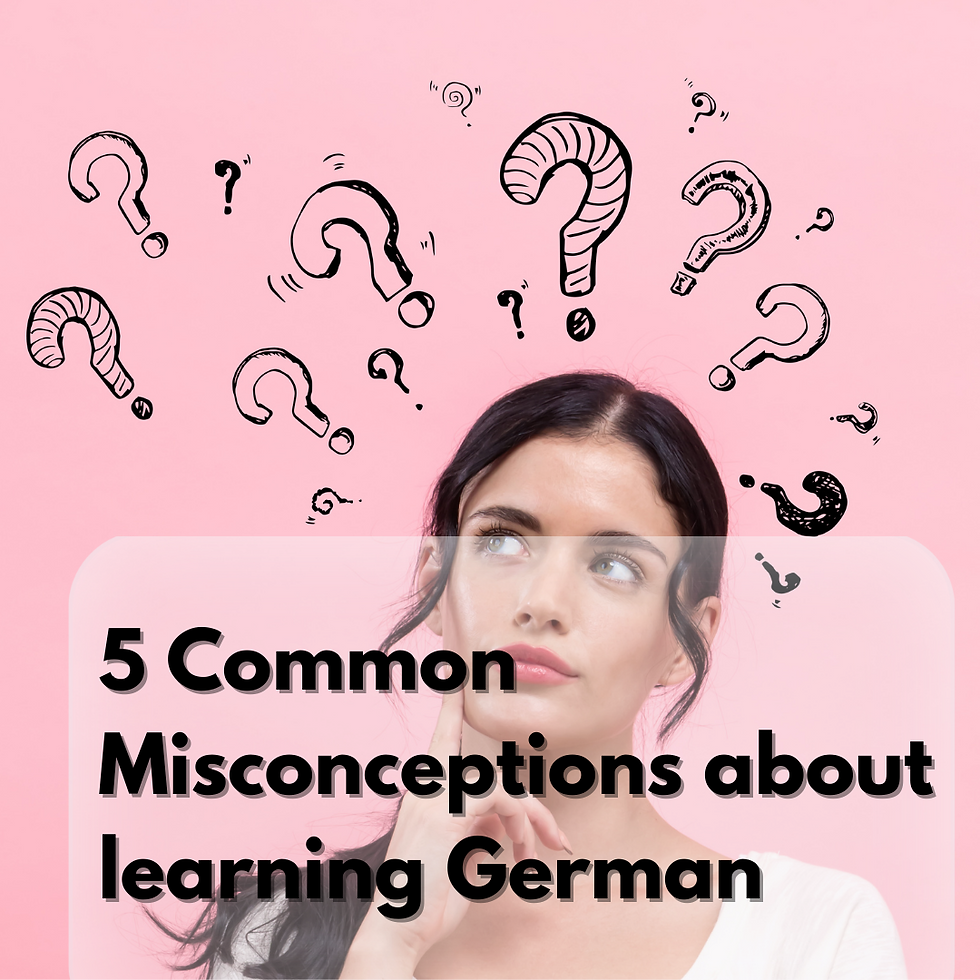"Ein" or "Eins"? Deciphering the Difference in German Numerals
- Sarah

- Dec 14, 2023
- 2 min read
Introduction:
Numbers are an integral part of language and communication.
In the German language, the numerals "ein" and "eins" may appear quite similar at first glance, but they have distinct roles and usages. In this comprehensive guide, we'll explore the nuances of "ein" and "eins," provide examples, and offer a quick tip to help you navigate these numeral forms effectively.
Table of Contents:
Understanding "Ein" and "Eins"
When to Use "Ein" When to Use "Eins"
Examples of "Ein" and "Eins" in Context
Quick Tip for Differentiating "Ein" and "Eins"
Conclusion
1. Understanding "Ein" and "Eins"
"Ein" and "eins" are both German words for the numeral "one." However, they are used in different contexts and have distinct grammatical roles.
2. When to Use "Ein"
● Indefinite Article: "Ein" is predominantly used as an indefinite article, meaning "a" or "an" in English. It introduces a singular, unspecified noun, indicating one of something.

● Example: "Ich habe ein Buch." (I have a book.)

3. When to Use "Eins"
● Cardinal Number: "Eins" is used as a cardinal number, indicating the quantity "one."
● Example: "Ich habe nur eins." (I only have one.)
4. Examples of "Ein" and "Eins" in Context
● Indefinite Article (Ein): "Ich trinke ein Glas Wasser." (I am drinking a glass of water.)
● Cardinal Number (Eins): "Ich habe eins gewonnen." (I have won one [prize].)
5. Quick Tip for Differentiating "Ein" and "Eins"
Article vs. Number: Remember that "ein" is an indefinite article introducing a noun, while "eins" is a cardinal number indicating the quantity one.
6. Conclusion
The distinction between "ein" and "eins" may seem minor, but it plays a significant role in ensuring accurate communication in German. Understanding when to use each form enhances your language skills and helps you convey precise meanings.
As you continue learning German, practise using "ein" and "eins" in various contexts. This will solidify your grasp of their distinct usages and contribute to your overall proficiency in the language. By mastering these nuances, you'll navigate conversations with confidence and accuracy, demonstrating your command over German numerals.

Read more blogs!
Memory training: How to remember long German numbers
German articles are no longer a problem!
Get Fluent in German: 116 Words to Impress Your German Freunde (Friends)
Unlocking the German language has never been easier with the GermanMind Method learning platform. If you're wondering how to learn German effectively, you've come to the right place. Our platform offers a wide range of resources and tools designed to make learning German an enjoyable and accessible experience. Whether you're a beginner or looking to advance your language skills, our German classes are tailored to your needs. Our online German language courses provide flexibility and convenience, allowing you to learn at your own pace. Become a GermanMind Pro and join us on the journey of learning German, discovering the power of the GermanMind Method.





Comments